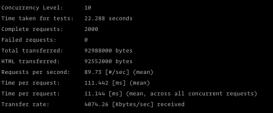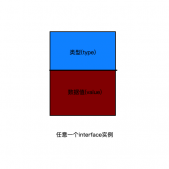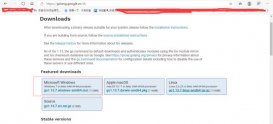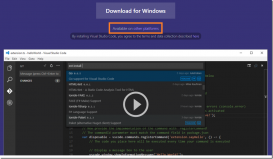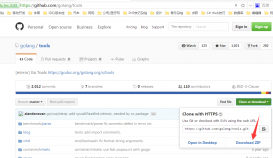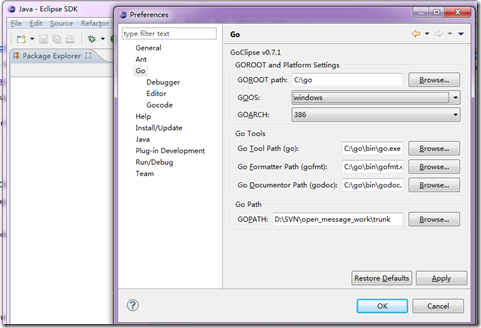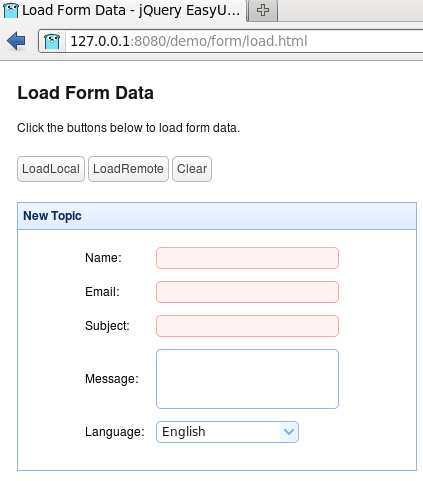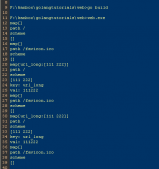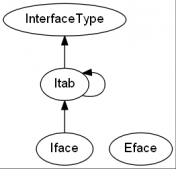使用gorm的update接口,出现如果字段为零值
则不会生成字段的更新语句
|
1
2
3
4
5
|
// Update update attributes with callbacks, refer: https://jinzhu.github.io/gorm/crud.html#update// WARNING when update with struct, GORM will not update fields that with zero valuefunc (s *DB) Update(attrs ...interface{}) *DB { return s.Updates(toSearchableMap(attrs...), true)} |
如:
|
1
2
3
4
5
|
type AA struct { ID int `gorm:"primary_key" json:" - "` //主键id Code1 string Code2 string } |
如果
|
1
2
3
4
5
|
a :=AA{ ID:1, Code1:1, Code2:0} |
则产生的SQL语句将不包含Code2更新语句,
|
1
|
update aa set Code1 =1 where id =1; |
出现该问题的原因在于
使用stuct类型对象作为参数时,struct会首先转化为map对象,然后再生成SQL语句,但是转化为map的过程中,对于零值字段是忽略的
|
1
2
3
4
5
6
7
8
9
10
11
12
13
14
15
16
17
18
19
20
21
22
23
24
25
26
27
28
29
30
31
32
33
34
35
36
37
38
39
40
41
42
43
44
45
46
47
48
49
50
51
52
53
54
55
56
57
58
59
60
61
62
63
64
65
66
67
68
|
// assignUpdatingAttributesCallback assign updating attributes to modelfunc assignUpdatingAttributesCallback(scope *Scope) { if attrs, ok := scope.InstanceGet("gorm:update_interface"); ok { if updateMaps, hasUpdate := scope.updatedAttrsWithValues(attrs); hasUpdate { scope.InstanceSet("gorm:update_attrs", updateMaps) } else { scope.SkipLeft() } }} func (scope *Scope) updatedAttrsWithValues(value interface{}) (results map[string]interface{}, hasUpdate bool) { if scope.IndirectValue().Kind() != reflect.Struct { return convertInterfaceToMap(value, false, scope.db), true } results = map[string]interface{}{} for key, value := range convertInterfaceToMap(value, true, scope.db) { if field, ok := scope.FieldByName(key); ok && scope.changeableField(field) { if _, ok := value.(*SqlExpr); ok { hasUpdate = true results[field.DBName] = value } else { err := field.Set(value) if field.IsNormal && !field.IsIgnored { hasUpdate = true if err == ErrUnaddressable { results[field.DBName] = value } else { results[field.DBName] = field.Field.Interface() } } } } } return} func convertInterfaceToMap(values interface{}, withIgnoredField bool, db *DB) map[string]interface{} { var attrs = map[string]interface{}{} switch value := values.(type) { case map[string]interface{}: return value case []interface{}: for _, v := range value { for key, value := range convertInterfaceToMap(v, withIgnoredField, db) { attrs[key] = value } } case interface{}: reflectValue := reflect.ValueOf(values) switch reflectValue.Kind() { case reflect.Map: for _, key := range reflectValue.MapKeys() { attrs[ToColumnName(key.Interface().(string))] = reflectValue.MapIndex(key).Interface() } default: for _, field := range (&Scope{Value: values, db: db}).Fields() { if !field.IsBlank && (withIgnoredField || !field.IsIgnored) { //只有非零值才更新 attrs[field.DBName] = field.Field.Interface() } } } } return attrs} |
为了更新零值字段,则需要修改gorm库,我们这里添加一个FORCE标识字段必须更新
|
1
2
3
4
5
|
type AA struct { ID int `gorm:"primary_key" json:" - "` //主键id Code1 string `gorm:"force"` Code2 string `gorm:"force"` } |
修改Sope的Fields函数,对于有FORCE标签的字段,IsBlank直接设置为fasle
|
1
2
3
4
5
6
7
8
9
10
11
12
13
14
15
16
17
18
19
20
21
22
23
24
25
26
27
28
29
30
31
32
33
34
35
|
// Fields get value's fields//通过反射获取field的值func (scope *Scope) Fields() []*Field { if scope.fields == nil { var ( fields []*Field indirectScopeValue = scope.IndirectValue() isStruct = indirectScopeValue.Kind() == reflect.Struct ) // 解析结构体 for _, structField := range scope.GetModelStruct().StructFields { if isStruct { fieldValue := indirectScopeValue // 一般只有一个字段名吧????? for _, name := range structField.Names { if fieldValue.Kind() == reflect.Ptr && fieldValue.IsNil() { // 处理数组 fieldValue.Set(reflect.New(fieldValue.Type().Elem())) } // fieldValue = reflect.Indirect(fieldValue).FieldByName(name) } //有force代表强制更新 _, ok := structField.TagSettingsGet("FORCE") fields = append(fields, &Field{StructField: structField, Field: fieldValue, IsBlank: isBlank(fieldValue) && !ok}) //如果不是struct,则返回空,因为原生没有字段这个说法 } else { fields = append(fields, &Field{StructField: structField, IsBlank: true}) } } scope.fields = &fields } return *scope.fields} |
补充:Gorm 自动update操作自动过滤0和 “ “
gorm会自动过滤结构体的0 和" "
|
1
2
3
4
5
6
7
8
9
10
11
12
13
14
15
16
17
18
19
20
21
22
23
24
25
26
|
type CrmUserTableColumns struct { Id int64 `gorm:"column:ids"` Name string `gorm:"column:xxx"` Account string `gorm:"column:xxx"` Password string `gorm:"column:xxx"` State int64 `gorm:"column:state"` BusinessId int64 `gorm:"column:business_id"` DepartmentId int64 `gorm:"column:department_id"` ...}func (u *CrmUserTableColumns) TableName() string { return "crm_user"}field := map[string]interface{}{ "business_id": data.BusinessId, "state": data.State, "department_id": data.DepartmentId, } whereSql = "account = ?"updates := dbMasterClient. //Debug(). Model(&CrmUserTableColumns{}). Where(whereSql, whereCase). Updates(field) RowsAffected = updates.RowsAffected return |
以上为个人经验,希望能给大家一个参考,也希望大家多多支持服务器之家。如有错误或未考虑完全的地方,望不吝赐教。
原文链接:https://blog.csdn.net/idwtwt/article/details/104018291



